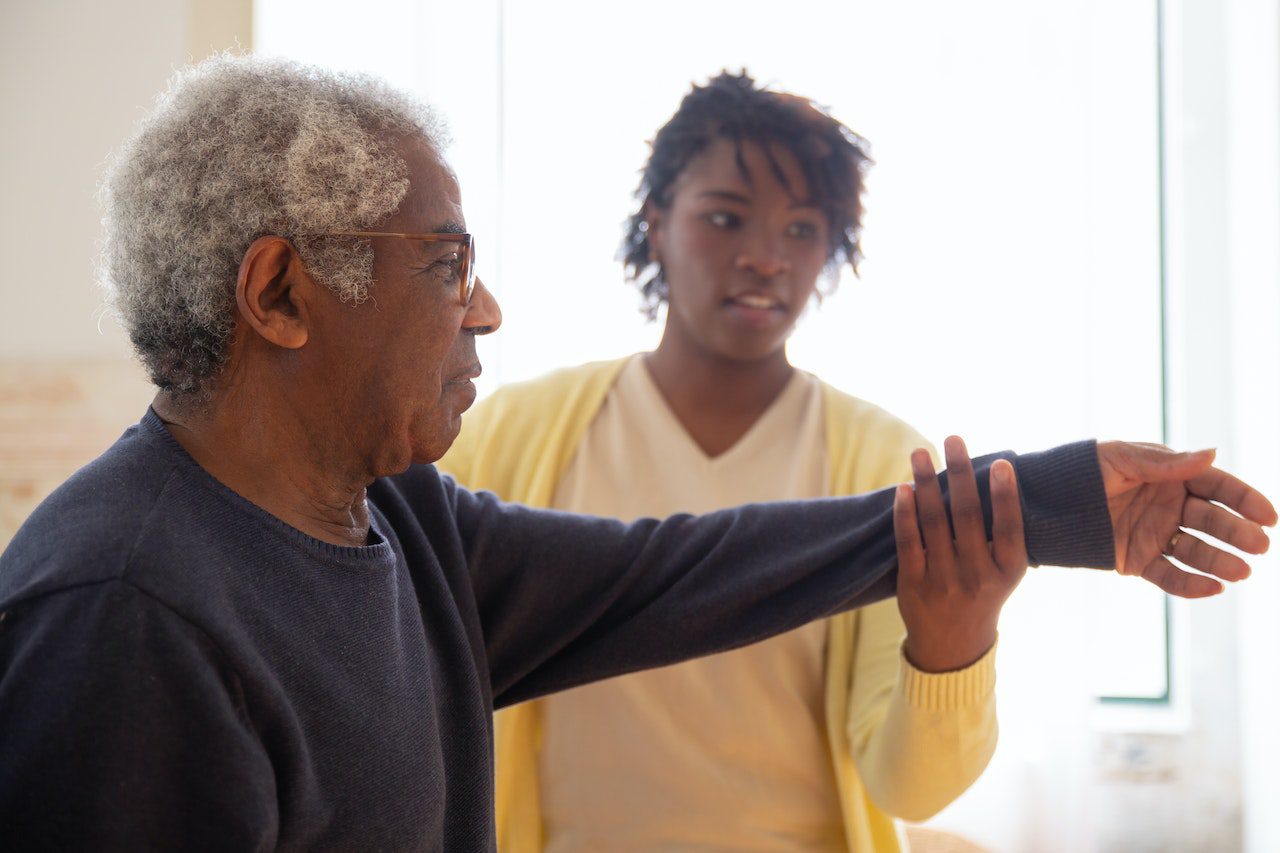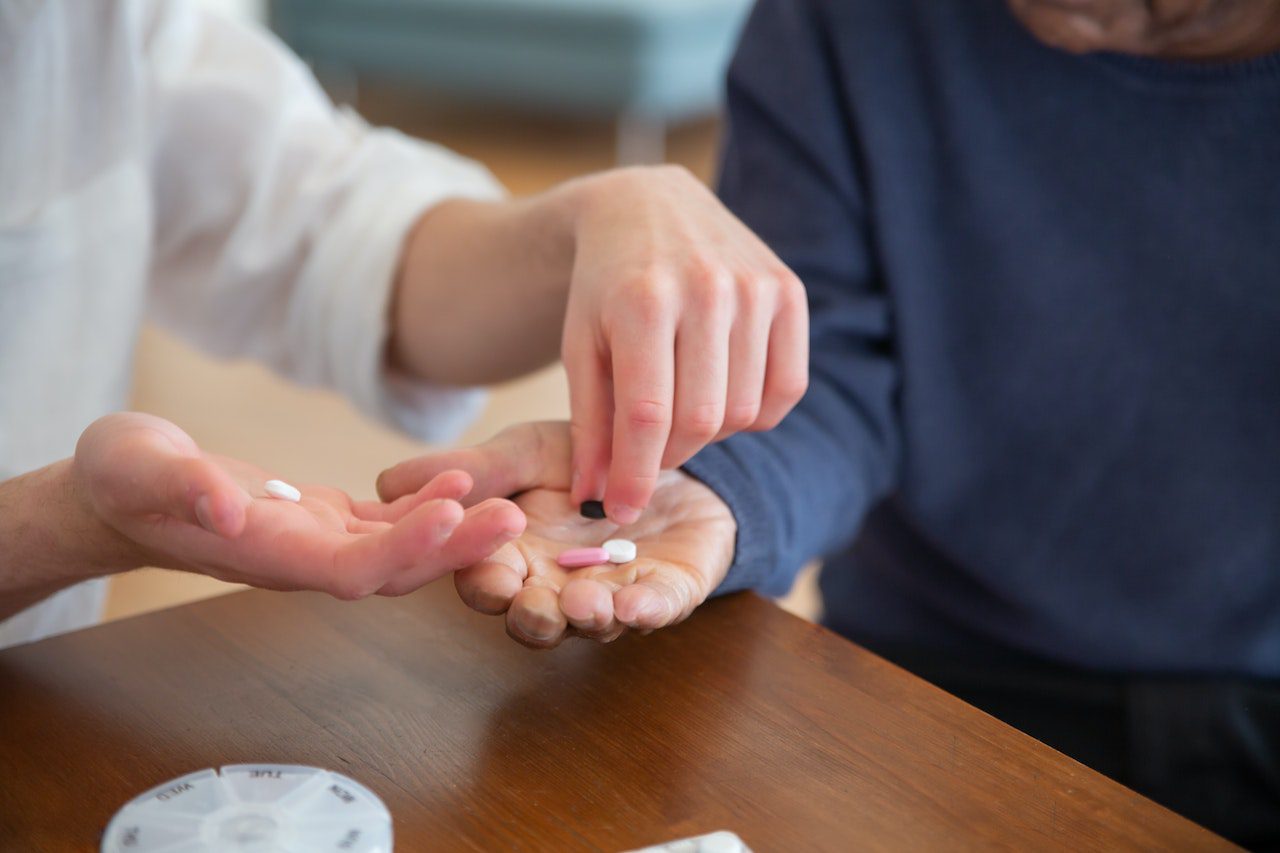You can’t always be there. But we can.
How to Schedule Rehab After Surgery for Elderly Parents

Caring for a Loved One with Dementia
June 6, 2023
Elderly Stress- What Causes It and What You Can Do
October 9, 2023How to Schedule Rehab After Surgery for Elderly Parents
Caring for a loved one after surgery is crucial to their recovery process. A proper post-surgery rehabilitation care plan helps them heal faster and minimizes the risk of complications or infections. In this article, we discuss essential tips for how to take care of bedridden elderly parents at home after surgery.

Preparing for Your Loved One’s Return Home
Before your loved one returns home from the hospital, it is essential to start preparing for rehab after surgery. For elderly parents, this means that their living space may need to be reorganized to help ensure a smooth and safe recovery process. Here are three steps to follow:
1. Make Necessary Home Modifications
Depending on the type of surgery and the level of mobility, modifications might include installing handrails in the bathroom, adding ramps for wheelchair access, or rearranging furniture to create clear and safe walking paths.
2. Stock Up on Necessary Supplies
Ensure you have all the necessary supplies you and your loved one will need during their recovery. Learning how to take care of bedridden elderly parents in their home will be so much easier when you have all the items recommended by their healthcare provider close at hand.
3. Set Up a Comfortable Recovery Space
For elderly parents, rehab after surgery can be an uncomfortable and stressful experience. You can help to alleviate anxiety by creating a comfortable area that offers easy access to water, tissues, their phone, and any assistive devices they may need (e.g., a walker or cane).
Understanding Post-Surgery Instructions & Medications

On the day of your loved one’s release from the hospital, it is crucial to understand the doctor’s instructions and prescribed medications. Here are three points to remember:
1. Make Sure You Understand the Doctor’s Instructions
Make sure you understand all the details of the doctor’s instructions, including wound care, activity restrictions, and follow-up appointments. If you have questions, don’t hesitate to ask.
2. Follow All Directions for Medication
For the elderly, the success of rehab after surgery can hinge on taking prescribed medications. Set reminders to ensure your loved one takes the correct amount on time every day.
3. Monitor Side Effects and Report Concerns
How to take care of bedridden elderly parents at home involves keeping a close eye on any side effects or complications resulting from medications or the surgery itself. If you notice anything unusual or concerning, contact the doctor immediately.
Providing Emotional Support and Encouragement
Rehab after surgery can be challenging for elderly loved ones. Here are three easy-to-implement suggestions for how you can provide emotional support.
1. Be Patient and Understanding
Your loved one may feel frustrated or discouraged during their recovery. Be patient, understanding, and empathetic to their feelings.
2. Offer a Listening Ear
Allow your elderly loved one to express their feelings about their recovery process. Listen attentively and validate their emotions.
3. Encourage Positivity and Focus on Recovery
Remind your loved one of the importance of staying positive and focused on their recovery. Celebrate their progress and reassure them they will get through this challenging time.
Don’t Forget Proper Nutrition and Hydration
A well-balanced diet and proper hydration play essential roles in the recovery process and can help speed the rehab after surgery for your elderly parent. Ensure your loved one is consuming a variety of nutrient-rich foods to promote healing and overall health. Encourage them to drink water, juice, or other hydrating beverages throughout the day. Following best-practice food safety measures to prepare meals and snacks that are easy for them to eat. If you’re unsure what meals are healthiest for their medical needs, consult their doctor or a registered dietician.
Get Professional Caregiving Support
Navigating how to take care of bedridden elderly parents in their home can be stressful for adult children and extended family members. It’s important to remember that working with an elder care agency can be beneficial to both your loved one and you. Professional caregivers are trained in organizing all components of rehab after surgery for elderly people in a compassionate and skilled manner.
With a professional caregiving service, family members can ensure their loved ones receive high-quality, in-home care while they recuperate from surgery. To learn more about 1Heart’s around-the-clock care services, contact us today. We’re ready to be your partner in providing quality, in-home care for your loved one.
